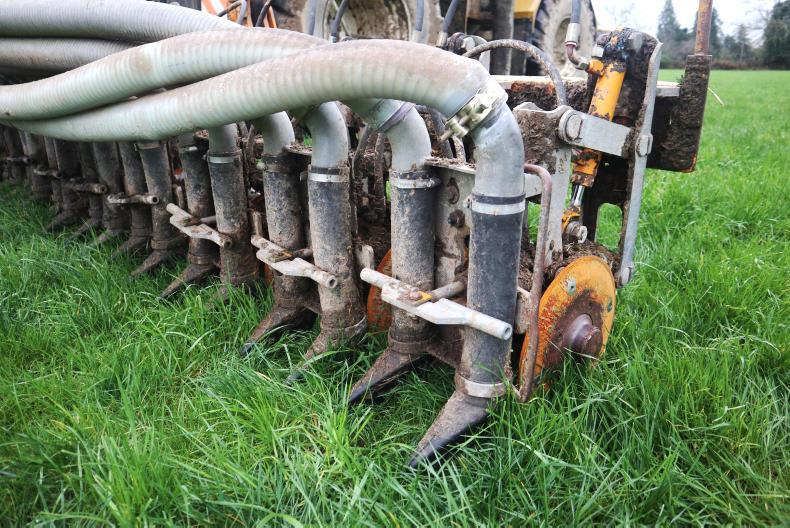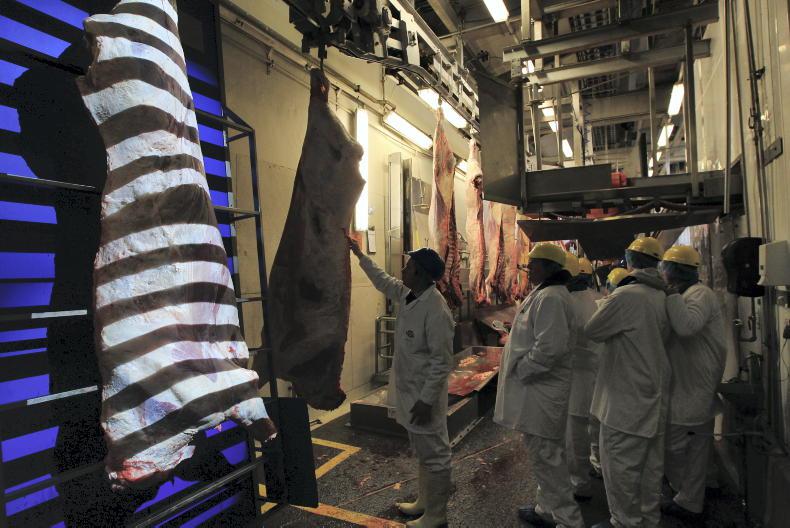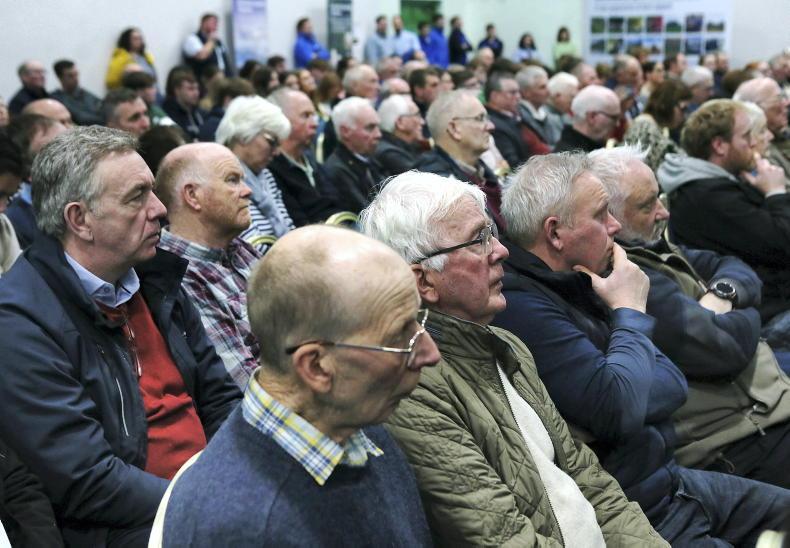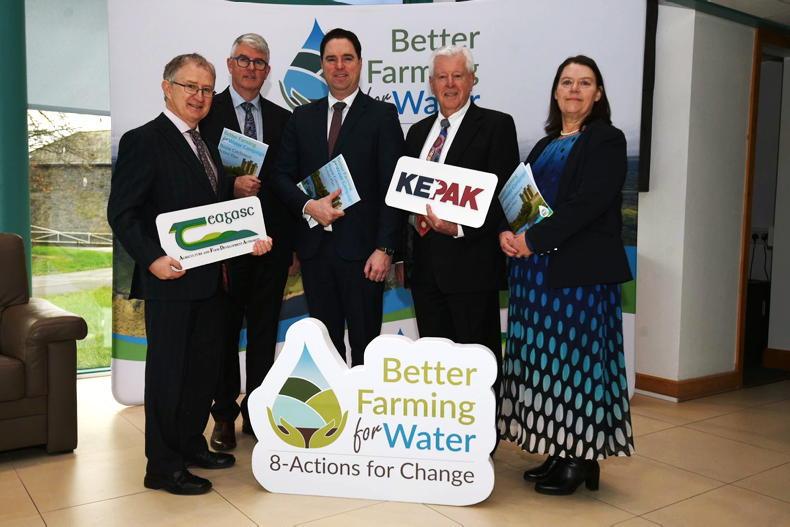The Department has listened to some of the concerns expressed by farm lobby organisations, including the Ulster Farmers’ Union (UFU), and softened its approach around future slurry management in NI.
The new rules are contained in the Nutrient Action Programme (NAP), agreed with the European Commission this week, and covering the next four years in NI.
In its response, the UFU strongly opposed a number of the measures originally proposed, setting out a range of arguments as to why they were impractical for farmers.
As a result, some changes have been made, with DAERA agreeing to drop a requirement that all existing slurry stores and lagoons be fitted with covers by 2022.
However, it remains the case that all new above-ground stores will have to be fitted with a cover.
On low-emission spreading of slurry (using dribble bars or a trailing shoe) the original proposal was that this would be required on farms with more than 100 livestock units (10,000kg N for pigs) from 1 January 2022.
This has been amended to 200 livestock units (20,000kg N for pigs), which will impact around 1,100 farms in NI.
However, other requirements remain, including that, from 1 February 2020, digestate from anaerobic digestion plants must be spread using low-emission equipment.
DAERA is considering further financial support to help farmers buy such equipment.
On the issue of manure nitrogen excretion rates from dairy cows, the Department originally suggested removing the current 91kg N/head/year assumed for all dairy cows, and replacing it with four different bands.
For herds yielding over 8,500l, the proposed rate was 116kg N/head/year, which would have pushed these herds closer to, and above, the overall limit of 170kg manure N/ha.
The Department has decided to drop these bands and assume an overall rate of 100kg N/head/year.
It is an increase of 10%, but for youngstock, rates have been lowered, meaning the overall impact works out at an increase on a dairy farm of around 6%.
P fertiliser
For farmers using phosphorus-containing fertiliser, from 1 January 2020 they will need to prove there is a crop need (through soil analysis) and have a fertiliser plan in place.
The same requirement for arable growers has been dropped, as it is recognised they already work to detailed plans.
On urea, the Department originally proposed that it is banned from 1 January 2020 unless it is treated with an inhibitor.
However, there is little science on the use of urea inhibitors, so the original proposal has been shelved for now.
Also changed is the requirement that all new slurry stores should be at least 50m from a watercourse. This has been amended to apply only to above-ground stores.
Derogation
With the NAP agreed with the Commission, DAERA then sought to get the derogation approved by the EU nitrates committee. That was signed off on Wednesday, and also covers the next four years.
The derogation allows grassland farmers to spread up to 250kg of manure N/ha/year, rather than the standard 170kg N.
However, it is understood that some changes are possible to the derogation that will bring rules more into line with other EU member states, including the Republic of Ireland (ROI).
For example, a farmer operating under derogation in ROI has to spread 50% of all slurry produced by 15 June. After this date, all slurry must be applied using low-emission spreading equipment.
Read more
Editorial: environmental controls becoming the new quota
DAERA proposes tighter slurry rules
The Department has listened to some of the concerns expressed by farm lobby organisations, including the Ulster Farmers’ Union (UFU), and softened its approach around future slurry management in NI.
The new rules are contained in the Nutrient Action Programme (NAP), agreed with the European Commission this week, and covering the next four years in NI.
In its response, the UFU strongly opposed a number of the measures originally proposed, setting out a range of arguments as to why they were impractical for farmers.
As a result, some changes have been made, with DAERA agreeing to drop a requirement that all existing slurry stores and lagoons be fitted with covers by 2022.
However, it remains the case that all new above-ground stores will have to be fitted with a cover.
On low-emission spreading of slurry (using dribble bars or a trailing shoe) the original proposal was that this would be required on farms with more than 100 livestock units (10,000kg N for pigs) from 1 January 2022.
This has been amended to 200 livestock units (20,000kg N for pigs), which will impact around 1,100 farms in NI.
However, other requirements remain, including that, from 1 February 2020, digestate from anaerobic digestion plants must be spread using low-emission equipment.
DAERA is considering further financial support to help farmers buy such equipment.
On the issue of manure nitrogen excretion rates from dairy cows, the Department originally suggested removing the current 91kg N/head/year assumed for all dairy cows, and replacing it with four different bands.
For herds yielding over 8,500l, the proposed rate was 116kg N/head/year, which would have pushed these herds closer to, and above, the overall limit of 170kg manure N/ha.
The Department has decided to drop these bands and assume an overall rate of 100kg N/head/year.
It is an increase of 10%, but for youngstock, rates have been lowered, meaning the overall impact works out at an increase on a dairy farm of around 6%.
P fertiliser
For farmers using phosphorus-containing fertiliser, from 1 January 2020 they will need to prove there is a crop need (through soil analysis) and have a fertiliser plan in place.
The same requirement for arable growers has been dropped, as it is recognised they already work to detailed plans.
On urea, the Department originally proposed that it is banned from 1 January 2020 unless it is treated with an inhibitor.
However, there is little science on the use of urea inhibitors, so the original proposal has been shelved for now.
Also changed is the requirement that all new slurry stores should be at least 50m from a watercourse. This has been amended to apply only to above-ground stores.
Derogation
With the NAP agreed with the Commission, DAERA then sought to get the derogation approved by the EU nitrates committee. That was signed off on Wednesday, and also covers the next four years.
The derogation allows grassland farmers to spread up to 250kg of manure N/ha/year, rather than the standard 170kg N.
However, it is understood that some changes are possible to the derogation that will bring rules more into line with other EU member states, including the Republic of Ireland (ROI).
For example, a farmer operating under derogation in ROI has to spread 50% of all slurry produced by 15 June. After this date, all slurry must be applied using low-emission spreading equipment.
Read more
Editorial: environmental controls becoming the new quota
DAERA proposes tighter slurry rules










SHARING OPTIONS